Orde Coombs
- 1974
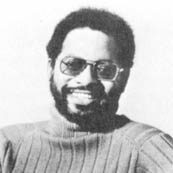
Fellowship Title:
- The Rise of a Black Middle Class Family in the U.S.
Fellowship Year:
- 1974
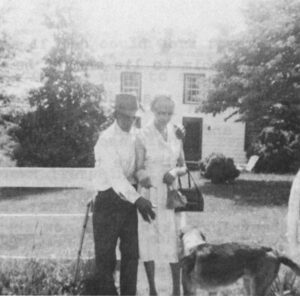
“You Needed a Strong Heart to See the Sunshine in This Country:” The Survivors of Robert Shelton Jones
The Washington fall morning is fresh and dew-drenched and full of the sounds of birds enjoying the yellowing leaves before they must fly south to sunshine. The 1974 red Thunderbird purrs down the asphalt ribbon of route 95 heading south and away from the morning’s stillness. At the wheel is Gordon Southall, the grandson of Robert Shelton Jones, who was born a slave In Albemarle County, Virginia, and who told his daughters before he died that he wanted them to be “somebody,” and forbade them to listen to “anybody who will tell you that you can’t.” Southall’s mother, Nellie Jones Southall, died on September 5, 1972, and on this crisp morning, slightly two years after her deaths Southall is taking a visitor back to the land of his grandfathers back to that place that smells not so much of pain, now, as of endurance. We are going back to that part of black America that always seems the strongest because it knows its roots, and because it has found in its capacity to survive, an
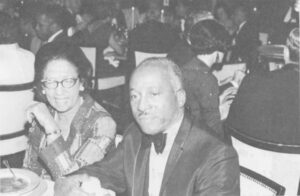
The Making of a Black Middle Class Family – The End of an Era
The end came suddenly so that although Rosa Victoria Jones Holloman had been ailing for over three years. It was something of a shook to learn that she had died. She had gotten frail and time had finally withered her. But although she remained bedridden for the last years of her life, there was still a gleam in her eyes as she watched you and as she silently let you know that she was still the matriarch to a family of achievers. The last six months of her life had seen her have her moments of despair, for she realized that she was the last surviving child of Robert Shelton Jones, the slave who after Emancipation had walked home from Tallahassee, Florida to Albemarle county, Virginia to start a family; and it bothered her, for she would whisper: “I’m the last to go. I don’t like it one bit.” It troubled her that she could no longer attend the Sunday church services at the Second Baptist Church In Washington, D.C., where her husband had been
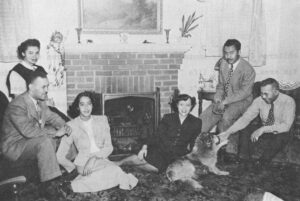
A Family Album
The world is packed with good women. To know them is a middle-class education. Oscar Wilde Oscar Wilde wrote the above lines with sarcasm dripping from his pen, but I think that one can view this quote through a different lens and find, in its literal interpretation, that there is much to be said for it. Certainly the life of Nellie Jones Southall – who was nothing, if not “a good woman” – is one to be admired and praised. She was born on December 4, 1891, the daughter of Robert Shelton Jones and Caroline McDaniel, former slaves In Albemarle County and near to the beautiful Blue Ridge Mountains of Virginia. Her mother died in 1894, and she was raised by a strict and authoritarian father who wanted her and her four sisters (See Newsletter 1) to “amount to something.” The Belle Nellie Jones as a teacher in the public schools of Greene County. Va. The Mother Caroline McDaniel, born in 1860 the daughter of Sally McDaniel, a slave and Garnett, a white landowner. She
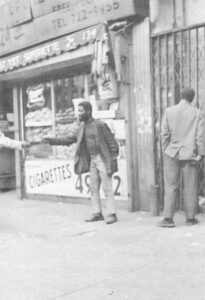
Notes On The Black Middle Class
In the January 1972 issue of Harper’s, I wrote an article called Soul In Suburbia, in which I tried to show that it was futile for the black middle class to think that it could escape from the problems of underclass blacks. I stressed that as long as a floating, black, poverty-stricken class existed, there would be no security for blacks in this country, because their problems here remained, fundamentally, political ones to be exploited at any time, by any politician of sufficient rightist charisma. I argued, further, that middle-class blacks had been seduced by the myth of individualism and had come not only to enjoy their seduction, but to believe that their salvation lay in Individual conquests of poverty. All these notions, I said, tended to make some middle class blacks wary of offering a helping hand to the despairing poor of the urban ghettoes. And I ended the piece by saying that there could be no relaxation for the black middle class, no false lull in the struggle for selfhood, as long as
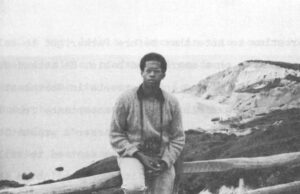
The Making of a Black Middle Class Family – Part 2
Barrington Daniels Parker, Jr. strides through the Wall Street throng at 12:15. His eyes are shaded by prescription lenses but one can still see the small furrows that time has be-gun to place on his 29 year old face. His grey summer suit is well tailored and fits a body that has recently been subjected to early morning jogging around New York’s Central Park and tennis at a friend’s court in East Hampton. His button down shirt and his red striped tie are from Brooks Brothers, and in his right hand he carries a brown briefcase that has seen more than its share of wear. As he moves along Wall Street In the summer sung his face is slightly upturned to speak to a taller friend, his voice is measured, his wit is sparkling and one begins to feel that though he might stumble he would never fall. And it is good to speak to this self-assured# six foot two inch young man as he makes his way to Oscar’s at Beaver and William Streets
